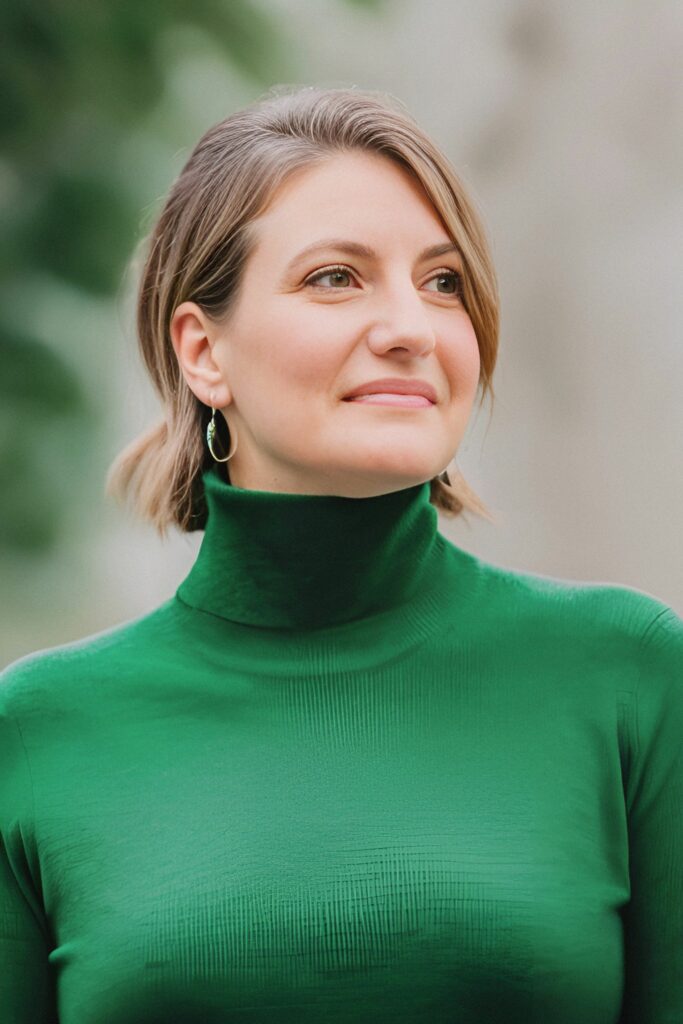Bio
From a young age, I realized the immense importance of communication, and not because I came from a household where we sat and talked about our feelings, quite the opposite.
Even as a young child, I was a social scientist and curious about relationships, and why are some people heard and others are ignored. This drove me to examine communication and relationships by pursuing a degree in speech and language pathology. I even took it a step further and made communication the focus of my studies and became an expert in neurodiverse communication. I am an educational psychologist, speech-language pathologist, board-certified behavior analyst, neurodiverse couples counselor, and a proud ADHDer.

For Episode Show Notes with Links Click Here
Q&A with Ali Arena
What happened after you graduated with your PhD?
I graduated end of 2019. I was working for a private practice and, at the time, my fiancée and I moved 20 miles away, which in LA is an hour and a half. So, I had to leave the private practice I was at, and I thought: “Let’s start a private practice (January 2020)”. And then the pandemic hit, but I always wanted to be virtual. Additionally, I knew I had ADHD but it wasn’t until we were in the pandemic that I realized. So I also was able to really do a deep dive into what ADHD is really doing, what it is, and what Neurodivergence is. And that’s another part of my private practice I look at a lot, how it feels to be late identified and figure out how it’s impacting your life.
What were some things that were going on that made you decide to open up your own private practice?
I have done all of the things that you could do within our field. I worked at a school, I worked at a hospital, and I did private practice. Not only that, but I also did them all to the highest degree (I know that can sound a little cocky but it’s not meant to). I got to the part where I was supervising and managing people and realized I didn’t love it and hated my long hours.
So it wasn’t working. What I really like is when a parent wants to talk to me about their neurodivergent child and I can give them the time that they deserve, as opposed to a 10-minute slot where I’m: “You gotta get outta my room because someone else is coming in for therapy”. So it just didn’t feel right. I’ve also learned about myself that I could literally work a 13-hour day, and see clients all day, and I would be good. Then I need the next day to breathe and chill. And you can’t do that within an environment of, nine to five. So I was so burnt out all the time that realized that this system wasn’t working for me.
How did you personally overcome managing things and managing your time better?
One was a real acceptance of: “I don’t have to do it all. I don’t have to have that many clients in one day.”
Also I started to look at one person as a three-hour entity as opposed to a one-hour. Another thing that’s helped too is learning limitations. During the week, my husband and I do Hungry Root, a meal-to-service thing. And then on the weekend, I will cook because I enjoy it, but I just don’t know how to figure it out during the week.
Lastly, during COVID I also started ADHD medication, which did really help me with just some of the initial starting of projects. Along with having a great therapist, who shifted how we were doing therapy a little bit because she knew that I had ADHD. The more you know about yourself, the more you can change behaviors and start to understand why you’re doing certain things.
Who would be a good person to run their own business or private practice?
I think you have to actually really want to. A lot of people go into it being: “Well, I just don’t like what I’m doing” or “I know it makes good money”. I’m not really sure if that’s totally valid, but I think that’s something I’ve heard. So I think you have to actually want to, because it can be challenging in the beginning. This entrepreneurship will bring all of your stuff out. I did not realize how truly disorganized I was or that I didn’t really have a flow for things, until all of everyone else’s materials went away and I had to figure it out on my own.
You literally have to find clients. The amount of things that I did poorly and I didn’t know, I didn’t have a system for onboarding. I wouldn’t always get everyone’s initial information I didn’t have a good system for notes. There were just a lot of things I’d learn over time. but if you have a strong desire to make it work because you know it works for your own lifestyle, I think that makes a big difference.
I also think, there’s this whole thing out here: “I work for myself or I don’t” and I don’t think that has to be true. A lot of people. Have their own private practice and then, work for a school district three days a week because they wanna fill morning hours or whatever. There’s nothing wrong with doing a balance.
Don’t miss an episode! Subscribe below to your favorite content channel
If you have not done so already, subscribe to the podcast.
This ensures that you do not miss an episode!




